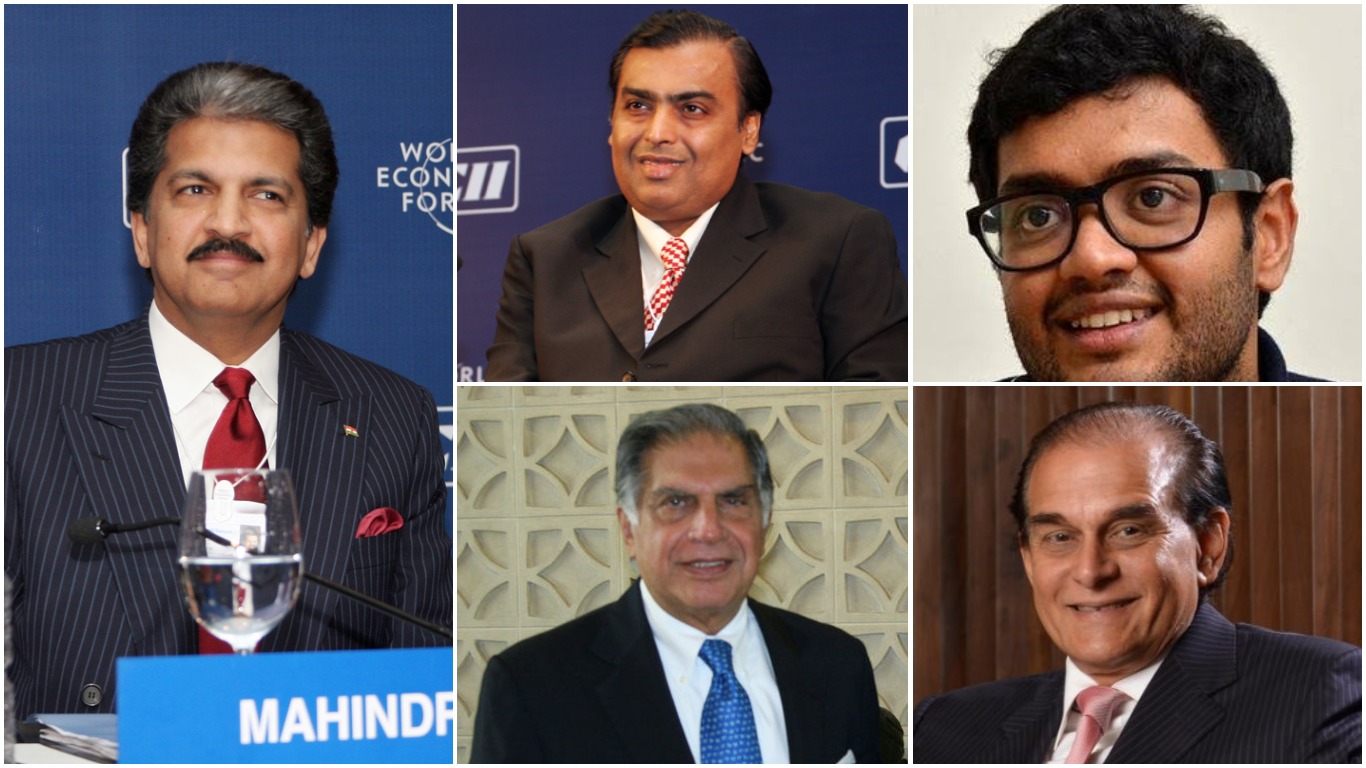The Indian business community (IBC) has a rich legacy and tradition of being an active partner with the government and civil society in times of calamities. This time it is no different when the novel coronavirus (COVID-19), a furiously capricious pandemic, is ravaging the world, leaving behind a trail of death and destruction. In this rare moment of disruption, the Indian business community has shown remarkable support to the government in the fight against COVID-19. Through the amalgamation of technology and innovation, the business community is serving the society and also creating new business opportunities in the time of the pandemic.
The Scourge at the Gate
India reported its first case on 30 January in Kerala from a person returning from Wuhan in China, the source of the pandemic. By 28 April the total number of infections rose to 29,974, including 937 death toll and 7,027 discharged after treatment. India is the fifth-largest economy in the world with deep integration with the world economy and close economic ties with China. India’s response to the pandemic has been noteworthy. Prime Minister Narendra Modi is leading the effort in tandem with state governments, civil society, healthcare and essential service providers and businesses. To stop and limit the spread of the pandemic, India has enforced a lockdown resulting in economic disarray and hardships. However, Modi’s ‘humane approach’ energised all Indians including businesses to extend a helping hand and to play their role as active members of ‘Team India’.
Turning the tide from adversity to opportunities
IBC is not only closely cooperating with the government but is leading from the front. This adversity is turned into opportunities by the synthesis of creative technological innovation with astute business strategy. There is a huge shortage of life-saving devices like ventilators and Personal Protection Equipment (PPE) the world over and India is no exception. Mahindra and Mahindra Ltd (M&M) is making PPE in its manufacturing units, its engineers have developed an indigenous automated version of the Bag Valve Mask ventilator (commonly known as Ambu bag) which will cost around INR 7,500.
Tata Consultancy Services (TCS) is maintaining seamless support to critical supply chain systems across industries, and smooth working of critical payroll processes. TCS artificial intelligence (AI) researchers through their patented algorithm and technology have identified potential molecules drugs for the fight against the pandemic and are actively collaborating with Council for Scientific and Industrial Research (CSIR) to develop it.
Swiggy food delivery unicorn is using its existing infrastructure to deliver essential household services and groceries by partnering with neighbouring stores as well as several key manufacturers and retailers like Marico, Cipla, Dabur and Hindustan Unilever. It has also helped keep the delivering partners employed.
Liquor major Diageo India has repurposed its 15 manufacturing facilities to manufacture hand sanitisers to meet the growing demand. The pandemic has severely affected the education sector with schools and coaching institutes closed. Several states are ill-prepared to meet this challenge due inadequate infrastructure and a severe shortage of teachers. To fill this void Indian Ed-tech companies are stepping in with Byju’s, the world’s highest-valued ed-tech unicorn, at the forefront. It has had a 150 per cent increase in new students since March when it initiated free access to its app for students.
Indian pharma and vaccine companies are known for their quality and affordability and are at the forefront in developing a vaccine for COVID-19 with Bharat Biotech, Serum Institute of India and Zydus Cadila leading the initiative.
Further, IBC is also helping the poor and the marginalised ravaged by the pandemic. Reliance Industries initiated a multi -pronged strategy to fight the pandemic. It has set up a 100-bed exclusive COVID-19 hospital in partnership with the Brihanmumbai Municipal Corporation (BMC). Reliance Foundation’s “Mission Anna Seva” will provide over 3 crore meals to the marginalized section worst affected.
Larsen & Toubro (L&T) through its Smart World & Communication has partnered with local authorities in 20 cities in managing complex civic functions in the wake of the pandemic like tracking patients, monitoring crowds and communicating with the public. It is supporting its 1.5 lakh contract workers by paying them wages and basic amenities at its construction sites.
Marico Innovation Foundation has started a med-tech competition named #Innovate2BeatCOVID, inviting innovators, entrepreneurs and startups to come up with cost-effective med-tech solutions to fight the pandemic with a grand prize money of INR 2.5 crore.
In this war against the pandemic it is not only the big business conglomerates but also the neighbourhood stores, truck drivers, delivery personnels, vegetables and fruits vendors who are heroically providing goods and services to the people at enormous personal risk. These are just a few illustrations of the great service being provided by the business community.
Navigating the way forward
Despite the innovative and proactive approach of the IBC, the challenges are enormous. The lockdown has disrupted the working of the economy with interruption of supply chains and the resulting gridlock. Except for the essential services most of the production and distribution is hindered. The worst affected are the Small and medium-sized enterprises (SMEs) and the unorganised sector which forms the bulk of the labour force in India. The government needs not only to support the business community but also nurture it. The government needs to come-up with a multi-pronged strategy along with fiscal and monetary stimulus. Policies have to be tailor-made for each sector with inputs from the stakeholders. This is also an opportunity for ushering in structural reforms as COVID-19 has exposed the faultline in the global economy due to overdependence on one country. This can provide newer opportunities for Indian business. The need of the hour is to cultivate Public-Private partnership and extend all necessary support to the business community to bring the economy back on track.
Disclaimer: Opinions expressed in this article are the authors' personal opinions and do not reflect the views of Connected to India. The management of the company does not assume any responsibility or liability for the article.
Kingshuk Saha graduated from RSIS, NTU and is a Researcher based in Bangalore, India.




